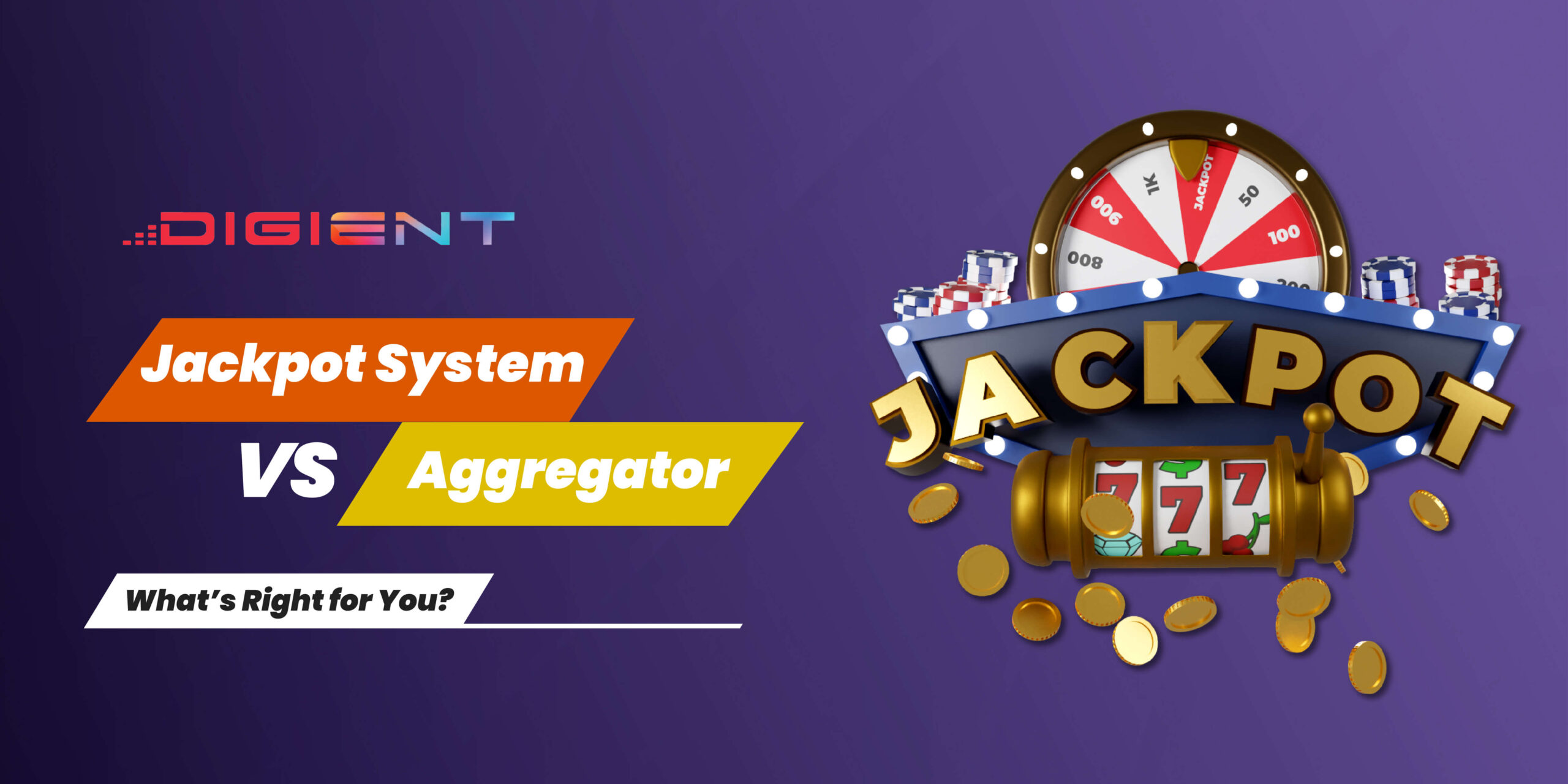 EN
▼
EN
▼
 EN
▼
EN
▼
 FR
FR
 JP
JP
 KR
KR
 PT
PT
 RU
RU
 ES
ES
 EN
EN

In the online casino industry, jackpots have evolved from simple prize mechanics into essential tools for player engagement, retention, and revenue growth. A well-structured jackpot can transform casual visitors into loyal players, increase session durations, and drive higher player value. However, operators today must decide between two core technologies, a casino jackpot system or a jackpot aggregator platform.
Understanding how these two models differ helps casino operators choose the most effective way to deliver engaging player experiences and maximize profitability in 2025.
What Is a Casino Jackpot System?
A casino jackpot system is a standalone setup designed to manage progressive jackpots for a single casino, brand, or game provider. It operates independently, powering jackpot logic, contribution tracking, and payout triggers for specific games or casino environments.
A casino jackpot system is best suited for single-brand operators who prioritize exclusivity, player personalization, and complete control over their jackpot campaigns.
What Is a Jackpot Aggregator Platform?
A jackpot aggregator platform acts as a centralized hub connecting multiple games, platforms, and even operators to a shared jackpot pool. Unlike standalone systems, aggregators enable jackpots to grow faster by pooling contributions from a wide player base across different casinos or game providers.
A jackpot aggregator platform is ideal for operators with multiple brands or markets seeking scalability, speed, and simplified campaign management.
Key Differences Between Jackpot Systems and Jackpot Aggregators
Feature | Casino Jackpot System | Jackpot Aggregator Platform |
Ownership | Managed directly by the casino or provider | Managed by a third-party aggregator |
Scope | Game-specific or single platform | Cross-platform and multi-operator |
Customization | Full control over design and mechanics | Limited customization, flexible campaigns |
Scalability | Confined to one environment | Global scalability across multiple markets |
Player Pool | Localized contributions | Shared contributions for faster growth |
Setup Complexity | Requires technical development and upkeep | Plug-and-play with provider support |
Marketing Impact | Brand-exclusive experiences | Dynamic, networked promotions |
Risk Management | Full control by operator | Managed by aggregator rules |
Operational Considerations for iGaming Operators
When choosing between a casino jackpot system and a jackpot aggregator platform, operators should evaluate the following factors:
Enhancing Player Retention with Progressive Jackpots
Both models help improve retention, but in different ways:
By using player analytics, operators can identify optimal jackpot times, game preferences, and player segments for better engagement outcomes.
Hybrid Models: Combining Jackpot Systems and Aggregators
Some operators combine both approaches to balance brand exclusivity with scalability:
This hybrid strategy helps operators maintain unique brand value while leveraging the broader appeal of networked jackpots.
Choosing the Right Solution for Your Casino Business
Before deciding between a casino jackpot system and a jackpot aggregator platform, operators should ask:
Smaller casinos or boutique brands often prefer casino jackpot systems for their exclusivity, while growing operators expand faster with jackpot aggregator platforms due to shared liquidity and plug-and-play scalability.
As a trusted casino software provider, Digient delivers cutting-edge casino jackpot systems and jackpot aggregator platforms designed for flexibility, compliance, and scalability. With over 18 years of iGaming expertise, Digient’s technology helps operators:
Conclusion
Jackpots are the heartbeat of online casino engagement, and choosing the right technology defines your brand’s success. A casino jackpot system offers full control, exclusivity, and deep customization, while a jackpot aggregator platform provides scalability, speed, and cross-market flexibility.
Many operators benefit from combining both models using brand-specific jackpots for loyalty and shared pools for global engagement.
For 2025 and beyond, working with an experienced casino software provider like Digient ensures you have access to reliable, scalable, and future-ready jackpot technology that drives retention, revenue, and long-term growth. Empower your casino business with Digient’s advanced jackpot solutions and redefine how your players experience the thrill of winning.